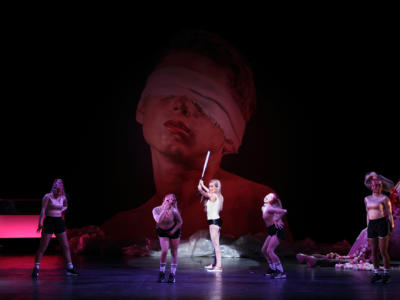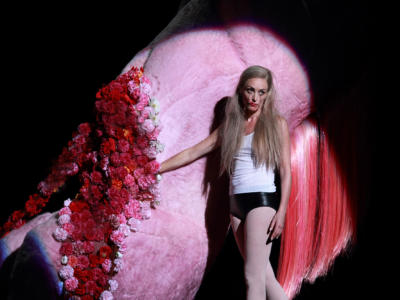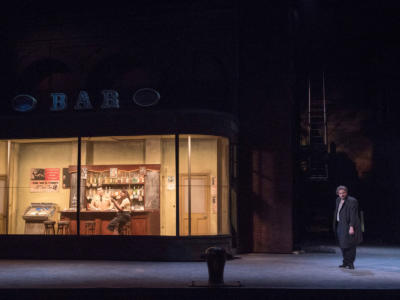Talking Heads: Why Salome still has so much to say
ENO’s 2018/19 Season opens at the London Coliseum in September with a new production of Strauss’s Salome directed by Adena Jacobs.
Ahead of the premiere of this bold new take on one of the twentieth century’s most ground-breaking and shocking operas, Stephen Wilkinson caught up with Adena to discuss her views on working in the art form and what the opera and its title character can offer us in the modern world.
The upcoming production of Salome marks your UK operatic debut. What have you found to be the challenges and rewards of the art form as a director?
When I make theatre, I mostly create new works inspired by myth rather than directing text, and so I am able to totally re-invent. The biggest challenge for me in opera is representation, contending with some of the gender and racial politics which feel anachronistic to us. Salome is extremely relevant to a modern audience, but still, there are aspects of the piece, the representation of Jews in particular, which are difficult to wrestle with as a director. In theatre, these elements can shift and be re-made entirely, whereas in opera they remain in the piece for the artists and audience to grapple with, which is both challenging and exciting. I couldn’t be more thrilled about this piece, and have loved working with Daniel Kramer, Martyn Brabbins and the entire company.
Video
What was the first thing you did when you were asked to direct Salome at ENO to prepare?
The first thing I did was listen to the opera from start to finish in a dark room. Although I had heard it before, it’s very different knowing you’re about to spend the next few years with it. And so listening in this way was like a meditation: letting the first instincts and images arrive, just listening and experiencing it, making a few key notes. I re-read the Wilde play shortly after as well, which I have always loved. I find that the core of a production is often located somewhere in that initial read or the first time listening to a piece.
Which opera directors or productions have inspired you?
Krystof Warlikowski, Katie Mitchell, Romeo Castellucci and Barrie Kosky.
You have returned to Greek tragedies, for example Antigone, The Bacchae and Oedipus Rex. How does Salome compare to them?
I have always thought of Salome as a tragedy and so yes, in many ways it’s connected to these works. When I first listened to the piece, knowing I would direct it, I had just completed a version of The Bacchae with an ensemble of female and non-binary performers and musicians aged 13–18, and so I couldn’t help but experience Salome through this lens. It’s interesting to me that in Salome as well as the Greeks, the kind of violence performed by the female figures is an amplification of the masculine, a mimicry of the kind of brute force these women have witnessed or experienced. Like the Bacchic women, Salome has absorbed the systems of power she has grown up with. She can only seek freedom through excess. I question why it is in so many of these myths, that women are only able to liberate themselves through violence
You have previously spoken about how power plays a key role in Salome.
In Salome there is a huge difference between power which is performed for political gain, and the kind of power which is unseen: the erotic, the subterranean, and mystical forces simmering below the surface, threatening to break it. Salome has mastered the tools of her own objectification. She knows how to construct herself for the gaze of others, how to seduce and to perform. But on this night, her capacity for true power is awakened in her. When she brings the slaughtered head of Jokanaan to her lips it is an act of possession, a god-like fantasy of dominion.
What do you think the opera has to teach us about the nature of power today?
The world of Salome is an old empire at the end of its life, the dominant systems are crumbling and exposing themselves. An impotent king is frightened of his own demise, a misogynistic prophet is gaining momentum, orthodox religious figures are clinging to their ideologies unwaveringly. Everyone is desperate for someone or something to pray to. I think the greatest warning inside this opera is not to mistake love for domination. All of the figures singularly devote themselves to one love object, whether that be a person, a god or an ideal. True love is a mystery, but the kind they all practice is a form of power, fanatical and objectifying. It blinds all of the figures and disconnects them from each other. I think this has huge relevance for a contemporary audience.
You can see Adena Jacobs’s brand-new production of Strauss’s Salome at the London Coliseum until 23 Oct. Find out more and book tickets below.



